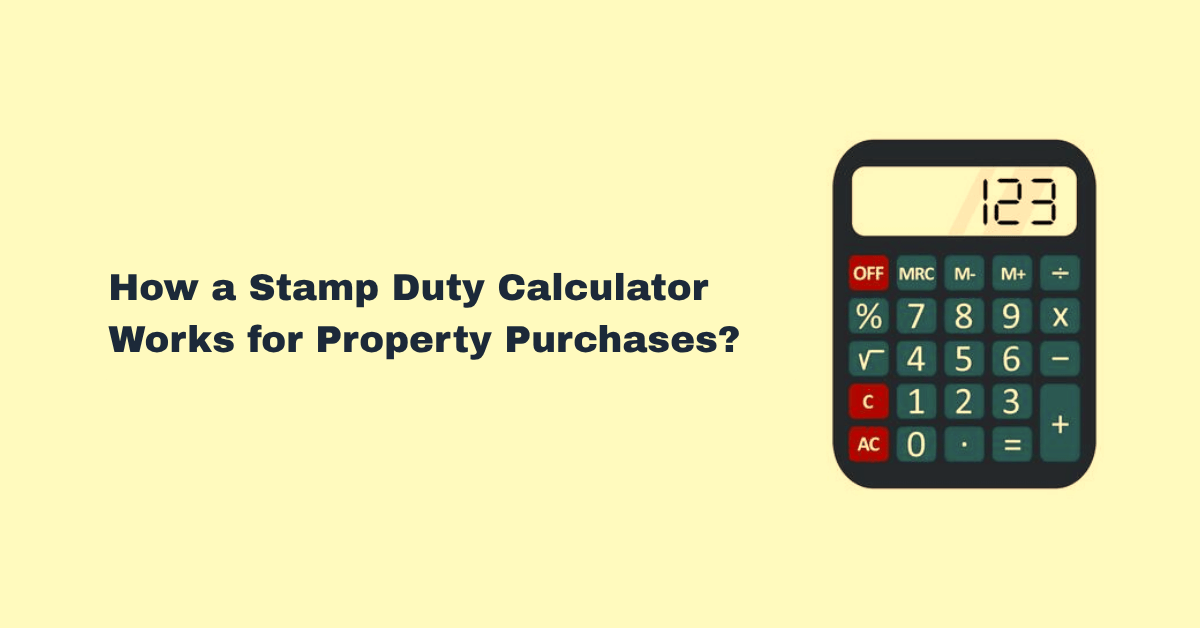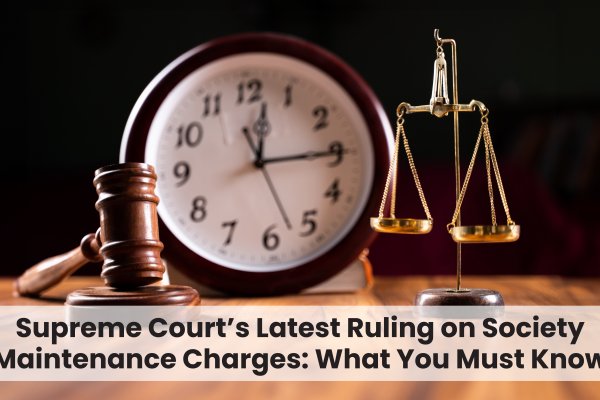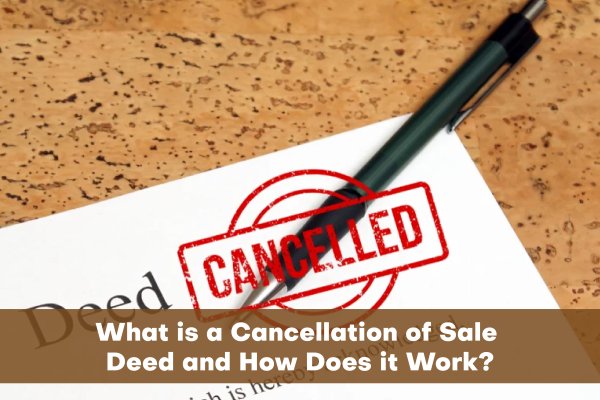Stamp duty is a key part of every property purchase, yet many homebuyers overlook it until the last stage. Knowing the amount in advance helps you plan finances with confidence. Instead of complex calculations, a stamp duty calculator offers a quick and reliable way to estimate costs. It gives clarity on how to calculate stamp duty and shows the value linked to your property.
For anyone wondering how much stamp duty on a property purchase they need to pay, this tool simplifies the process. By understanding the figures early, you can set a clear budget, avoid unexpected expenses, and move forward with greater peace of mind.
What is Stamp Duty?
Stamp duty is a tax charged by the government to make your property purchase legally valid. It confirms the transfer of ownership by recording it in the sale deed or agreement. Without this payment, the transaction cannot be enforced or recognised in court.
Why is Stamp Duty Important in Property Transactions?
While homebuyers focus on location and price, knowing the amount of stamp duty on a property purchase is equally important for planning your budget. Paying this fee ensures your transaction is lawful and protects your rights. Here is why it matters:
- Confirms Legal Ownership
Paying stamp duty secures your name as the legal property owner.
- Enables Property Registration
Registration authorities will not complete the sale deed until the duty is paid.
- Protects Against Disputes
A stamped document can be used in court to defend your ownership in case of conflicts.
- Promotes Transparency
The duty ensures property deals are recorded at fair values, reducing the chances of underreporting.
- Ensures Compliance
Each state sets its own rates, and timely payment helps avoid penalties or interest.
When and How is Stamp Duty Paid?
Knowing how to work out stamp duty and the right time to pay it can prevent delays during registration.
- Timing of Payment
Most states require payment to be made before or at the time of executing the sale deed. - Payment Methods
Homebuyers can pay through e-stamping portals, franking at authorised banks, or physical stamp paper. - Responsibility for Payment
The homebuyer usually pays, although the cost can be shared if both parties agree in the sale agreement.
Factors Affecting Stamp Duty Fee
If you are checking how to calculate the stamp duty value of a property, several factors come into play:
- Property Value
Higher values attract higher duty. The amount is calculated as a percentage of either the market price or the circle rate, whichever is greater.
- Location
Rates differ across states and between urban and rural areas. Additional surcharges may apply in cities.
- Type of Property
Residential, commercial, or agricultural properties attract different rates, with commercial usually higher.
- Homebuyer Profile
Some states reduce rates for women homebuyers, senior citizens, or first-time homeowners.
How is Stamp Duty Calculated?
Understanding how to calculate stamp duty is key to planning your budget. Rates vary by state and are applied to the higher of the agreement value or circle rate. Using a stamp duty calculator is the simplest way to estimate how to find stamp duty value of a property.
For instance:
- You purchase a flat in Chennai, Tamil Nadu.
- Agreement value: ₹80,00,000
- Circle rate: ₹75,00,000
- Applicable stamp duty: 5%
Here, the duty is based on ₹80,00,000 since it is higher.
Stamp Duty = ₹80,00,000 × 5% = ₹4,00,000
This example shows clearly how to calculate the stamp duty value of a property and avoid confusion during purchase.
Concessions and Exemptions
Many states in India provide concessions on stamp duty to make property ownership more inclusive. These exemptions can help reduce costs and improve financial planning.
- Women Homebuyers
Lower rates are available in states like Delhi, Punjab, and Haryana to encourage female ownership.
- Joint Ownership with Women
Registering a property jointly with a woman may still qualify for reduced rates.
- First-time Homebuyers
Some housing schemes offer relief to first-time homebuyers.
- Agricultural Land
Concessions may apply when farmers or eligible homebuyers purchase agricultural land.
- Government Schemes
Builders linked to housing initiatives sometimes include reduced stamp duty in the package.
- Senior Citizens and EWS
Certain benefits exist for senior citizens and those from economically weaker sections.
Penalties for Non-payment or Underpayment
Failing to pay the correct amount of stamp duty can create serious problems.
- Penalty Charges
States may impose heavy fines, sometimes several times the unpaid amount.
- Interest on Outstanding Duty
Interest is charged until the duty is fully cleared.
- Legal Inadmissibility
An unstamped document cannot be used in court, risking ownership disputes.
- Delayed Registration
Underpayment can halt property registration and delay transfer.
- Impact on Future Transactions
Errors with stamp duty affect resale and can reduce market value.
Tips to Save on Stamp Duty
There are practical ways to reduce costs while staying compliant, like:
- Consider joint ownership with a spouse or parent who qualifies for concessions.
- Properties in semi-urban or rural zones often attract lower charges.
- Look for projects under government housing schemes that include reduced duty.
- Time purchases around festival periods or state-announced concession windows.
Simplify Your Property Purchase with a Stamp Duty Calculator
Stamp duty gives your property purchase legal validity and must be factored in from the start. Many homebuyers underestimate its impact until the final stage, which can disrupt budgets and delay registration.
Using a stamp duty calculator is one of the easiest ways to plan ahead, as it offers a clear estimate based on location and property value. It also helps you understand how to find the stamp duty value of a property without going through complex calculations.
Casagrand’s stamp duty calculator provides quick and accurate results, allowing buyers to make well-informed financial decisions before finalising their purchase. With this clarity, you can prepare finances well in advance, avoid unexpected costs, and ensure your transaction is both smooth and transparent. Careful planning around stamp duty ultimately makes the home-buying journey more secure and stress-free.


















